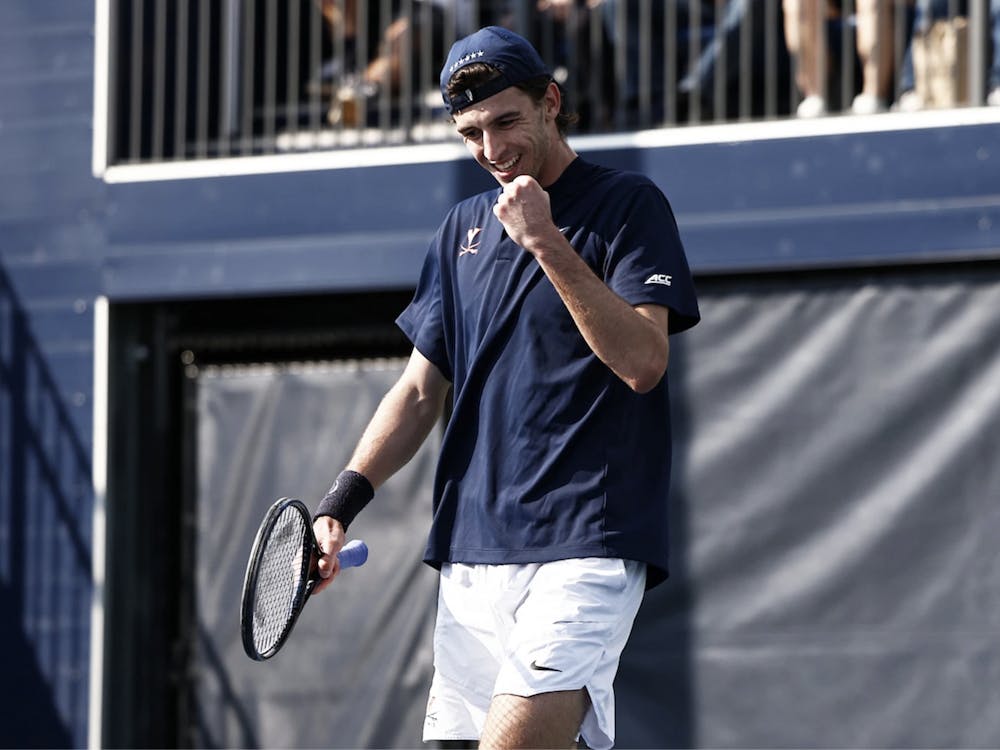In the eyes of Virginia head cross country coach Jason Dunn and his team, the regular season is divided into a series of steps, like those on a pyramid. As the season progresses, each scarce opportunity becomes more difficult and more important to the team's expected success.
"This [upcoming meet] is step three for us," Dunn said. "The ACC [Championships are] step four for us. Since we have so few competitions, we take them one at a time."
The Pre-NCAAs, or Pre-Nationals, held in Terre Haute, Ind. and hosted by Indiana State University, serve as a chance to prepare for a postseason run.
Cross country, a sport with several weeks for preparation between each competition, differs from other sports that endure a weekly competitive grind. However, when the teams compete, they face grueling runs of five or eight kilometers against top teams, especially this weekend.
"There are 75 or 80 teams around the country that go," Dunn said. "So, I would guess, on order of 20 to 25 of the top 30 teams in the country will be there. It is an opportunity for us to beat teams from other regions that will hopefully help us get to nationals down the road."
Coming into the meet, both Virginia squads are ranked in the top 30 national teams in the nation. The Virginia women's squad is ranked 23rd while the men are 27th. Despite a gradual improvement in rankings as the season progressed, some players still feel that this weekend will provide room for improvement.
"The weekly poll represents the opinion of a few coaches around the country that lead the polls," senior runner Soeren Lindner said. "We as a team do not think that the polls really tell much about the abilities and talent of the programs relative to each other. If that was so, why should we race then? So basically, if we end up 27th at the end of the year we will be disappointed because we are convinced that we can achieve more and place higher at nationals."
Out of the nine NCAA regions in the nation, Virginia competes in the Southeast Region. Based on their performance, the Cavaliers must clinch one of the top two qualifying spots for Nationals or secure one of the 13 at-large bids available for quality teams.
"The at-large selection process is based on basically beating teams from other regions that qualified for nationals," Dunn said. "This meet has kind of turned into a way where all the teams that want to get an at-large bid come together and bang heads. And hopefully, we will come out where we need to be."
Last year, the Cavalier women finished 20th overall and the men finished 22nd. With a renewed desire for improvement, the Cavaliers will be pushed further by their established leaders and unity along their top runners, notably on the men's squad.
"On the men's side, we have such a close group from runner one to seven," Dunn said. "I don't know who will be our first guy out of that group, but I suspect that they will be all close together and pretty close to that front of the race."
Sophomore runner Emily Harrison, the only female runner to qualify for nationals last year, will look to lead the charge for the Cavaliers.
"On the women's side, I think Emily will assert herself and get up in the front" Dunn said. "She finished 25 last year in this race and hopefully [this time] she will be in the top 10 or top 15. I don't think that [junior] Kara Scanlin will be too far behind that."
By not looking too far ahead to the ACC Championships two weeks away, Virginia hopes to focus its efforts on completing its goal of a top finish against stiff competition.






